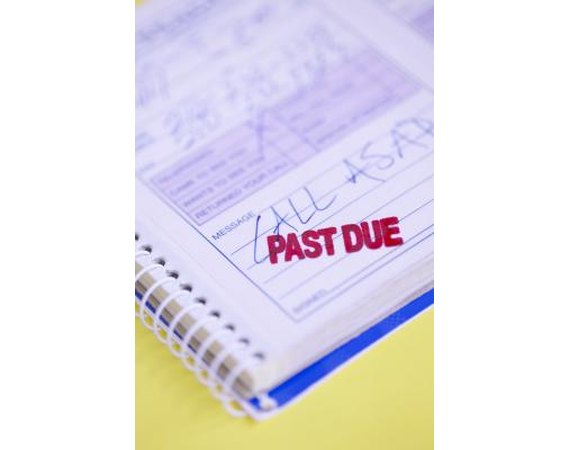
Paying an old debt, regardless of the its age, can never damage your credit score. The damage from allowing an account to go delinquent has already been done. However, paying an old debt can affect other aspects of debt collection that have no affect on your credit score, but can affect how a creditor or collection agency can recoup an outstanding debt.
Credit Reporting
According to the Fair Credit Reporting act, negative items are removed from your credit report seven years after the date of delinquency, which is usually the date of your last payment. Paying off old accounts does not renew the amount of time an account can appear on your credit history. For example, an original account that was closed or sold to a collection agency five years ago will still appear on your credit report if you pay it, but it must still come off of your credit report in two years. If you plan to apply for an apartment or purchase a new car before an old account reaches the seven year removal date, paying off the account is advantageous, because potential lenders prefer to see a paid collection account as opposed to an unsettled one.
Statue of Limitations on Debt
While paying off old debt will not hurt your credit score or affect the removal date from your credit report, it can restart the statue of limitations on the debt. The statue of limitations is the amount of time a creditor or collection agency has to sue or garnish your wages for an outstanding debt. The statue of limitations varies according to state and the type of debt. Some people incorrectly assume that once a debt passes the statue of limitations, there is no longer an obligation to pay the debt. While a creditor or collection agency cannot sue you or garnish your wages for an outstanding debt past the statue of limitations, it can still legally call or mail you in pursuit of the outstanding debt beyond the statute of limitations.
Paying Off Old Accounts
When you pay off an old debt, consider paying the debt in a lump sum. Creditors and collection agencies are usually willing to settle debts for a percentage of the original amount when paid in a lump sum, according to Consumer Reports. If you pay off an old account, obtain written conformation that the collection agency will note the account as "closed," "settled" or "paid as agreed" on your credit report, as opposed to negative line notations, such as "charged off." Also, review your credit report a month or two after settling the account to ensure the account details reflects the proper notation.
Considerations
No matter how many times your old debts are sold and purchased by debt collectors, the original date of delinquency should not change. According to the Neighborhood Economic Development Advocacy Project, some debt collectors tend to re-age debts or report the date they receive the delinquent account as the date of delinquency to keep debts recurring on your credit report beyond the statue of limitations. Debt re-ageing is in violation of the Fair Credit Reporting Act and you have the right to dispute re-aged debts as an error, even if the original account is valid.







0 comments:
Post a Comment